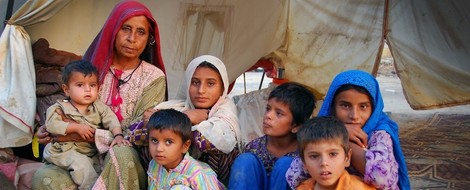Your podcast discovery platform
Curious minds select the most fascinating podcasts from around the world. Discover hand-piqd audio recommendations on your favorite topics.

piqer for: Climate and Environment Globalization and politics Health and Sanity
Mona Silavi is a human and women’s rights activist from the Ahwaz region in Iran. She obtained her bachelor in psychology and specialized in children and adolescence psychology at Damascus University, faculty of psychology and education. She holds a master degree in good governance and human rights in MENA region from Ca’ Foscari University in Venice. She started her activism in Damascus as member of Ahwazi Arab student association. Mona Silavi is a Project Officer at the Unrepresented Nations and Peoples Organization (UNPO) and is the coordinator for topics concerning freedom of religion and belief. She is also a spokesperson of the Al-Ahwaz Democratic Solidarity Party (DSPA). Since 2014 Ms Silavi lives in Belgium as a political refugee
Minority And Women’s Voices Underrepresented In New Government In Pakistan!
Following the 25 July 2018 general elections in Pakistan, it is now the time for the new prime minister, Imran Khan, to appoint cabinet members.
However, it seems that populism has become a norm in the political spheres internationally, and Imran Khan made the best of it, using his fame as a cricket champion and his controversial marriages to bring him attention.
It is true that Pakistan was created after the partition as a humongous Muslim country, and the government was always engaged the nation-building policies. But until now this country is diverse and national aspiration of different ethnic minorities rising up, especially in the region of Balochistan where China's silk road is passing by and undermines the demands of the local population.
And in the question of women rights, the country did not develop much, with religious and tribal laws still discriminating against women.
Although the turnout of minorities and women in the polls during this election cycle seemed to have been higher than in years past, their ability to participate in this year’s election was still significantly curtailed and the election process as a whole was marred by irregularities and violence.
When it comes to the appointment of Imran Khan’s new cabinet members, there is a very obvious under-representation of minorities and women. Fortunately, this matter was not absent in the public opinion, and activists openly criticised the fact that there is a lack of diversity and inclusion.
Women leaders of the opposition parties have criticised Pakistan Tehreek-e-Insaf (PTI) for the gender imbalance in the cabinets. In a tweet, Pakistan People’s Party (PPP) leader and former opposition leader in Senate Sherry Rehman said, “No women in either the KP or Balochistan cabinets? Only one out of 23 in Punjab too. Disappointing.”
If Pakistan’s leadership has a genuine intention of embarking on a path of democratisation, it must be willing for such voices to be seen and heard in leadership.
Stay up to date – with a newsletter from your channel on Globalization and politics.
